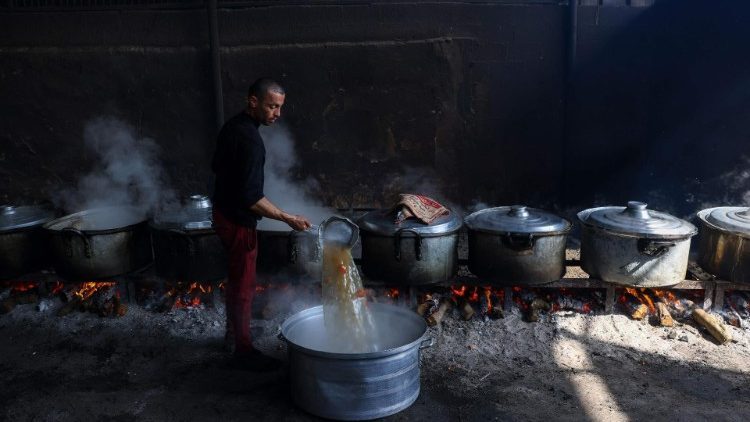As the siege of Gaza and the hostage crisis continue, UNICEF and four other UN agencies have reiterated their urgent appeal for a humanitarian ceasefire, along with unrestricted humanitarian access throughout Gaza to save lives and prevent further human suffering.
A first, but limited, shipment of emergency supplies from the United Nations and the Egyptian Red Crescent, including over 44,000 bottles of drinking water, entered Gaza on October 21, through the Rafah Crossing. This provided life-saving aid to some of the hundreds of thousands of civilians who have been cut off from water, food, medicine, fuel and other essentials.
21 October shipment far from enough
However, in a joint statement, the UN Children’s Fund (UNICEF), the UN Development Programme (UNDP), the UN Population Fund (UNFPA), the World Food Programme (WFP) and the World Health Organization (WHO) warned that this” is only a small beginning and far from enough.”
The statement highlights the immense needs in the wake of the crisis unleashed by Hamas’s heinous attacks in Israel on October 7, in which scores were killed and an estimated 200 Israeli hostages were seized and are still being held captive.
Children dying at an alarming rate
Vulnerable people are at greatest risk and “children are dying at an alarming rate and being denied their right to protection, food, water and health care,” the statement says.
Children are, indeed, the ones paying the highest price of the war. About one-third of the over 4,500 people killed so far in the Israeli retaliatory air strikes on Gaza are minors. They are also among the most exposed to the unfolding humanitarian crisis, along with pregnant women and elderly persons.
Every child, everywhere deserves peace
Dwindling fuel supplies for Gaza’s hospital generators are putting premature babies in incubators at risk, while at least 50,000 pregnant women in Gaza are unable to access essential health services. Some 5,500 are due to give birth in the coming month, according to the World Health Organization.
“Every child, everywhere deserves peace,” said UNICEF Executive Director Catherine Russell, warning that “Unless we can provide humanitarian supplies consistently, we face the real threat of life-threatening disease outbreaks.”
Along with other life-saving supplies, UNICEF has so far provided 50,000 litres of fuel and water supplies to support 800,000 people with access to minimum quantities of safe water. The UNICEF desalination plant is the only one still functioning in the Gaza Strip.
The UN Children’s Fund has also delivered an emergency cash transfer to some 1,000 households in Gaza to help parents meet their children’s basic needs.






